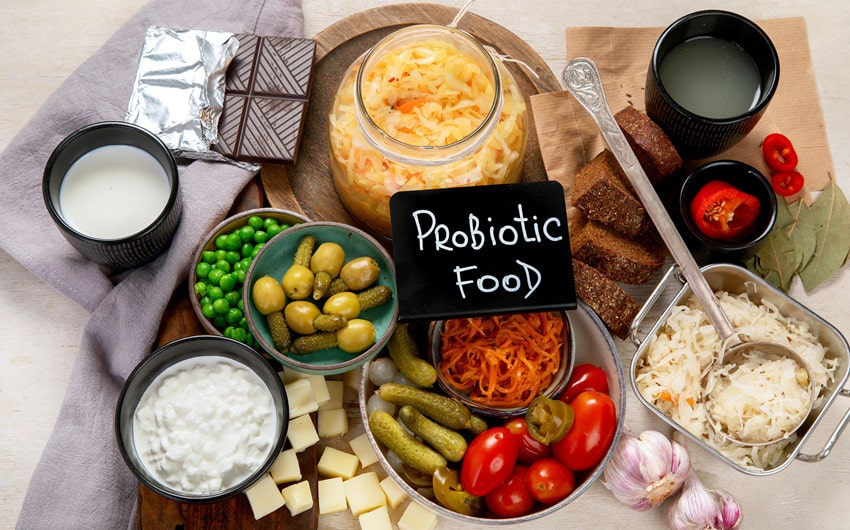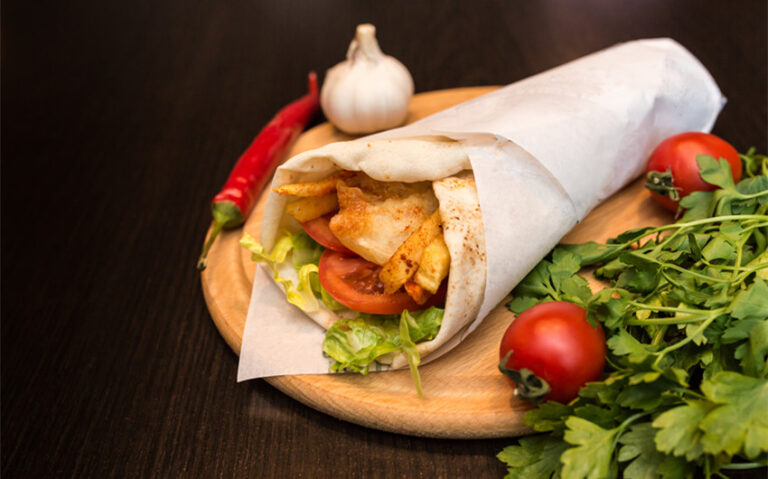Is It Hard To Get Probiotics From Food Alone?
Nutrition can be a hard puzzle to solve. While we’d love to get everything we need from the foods we eat, many people realize they need to turn to vitamins, supplements like FLO, and other helpers to fill gaps so they can continue to feel their best.
Among the many nutrients we may need a little help getting enough of in our diets, probiotics are microorganisms that help maintain a harmonious balance within the gut ecosystem. They are incredibly important for health and wellness, and it’s natural to wonder if you’re getting enough probiotics from your everyday meals.
This guide has the answer. Learn about probiotics and wellness and the best foods to add to your diet for the probiotics you can rely on.
What Are Probiotics?
Probiotics are live bacteria and yeasts that are good for your digestive system. They help to maintain the delicate balance in your gut flora and offer many health benefits, from aiding digestion to supporting your immune system. Think of them as the peacekeepers reigning within your gut jungle, ensuring order prevails amidst the mayhem.
Sources of Probiotics in Foods
When nurturing your gut health, nature offers an abundant selection of probiotic-rich foods that can transform your digestive ecosystem. These are some of the probiotic-rich foods that can support your digestion and overall well-being.
Tangy Yogurt
Yogurt, specifically those labeled as containing live and active cultures, is a classic probiotic food. Enjoy it as a standalone snack or incorporate it into smoothies and parfaits for a creamy and gut-friendly treat.
Fermented Kefir
A fermented dairy beverage packed with probiotics, kefir offers a tangy and slightly effervescent flavor profile. Incorporate kefir into your daily routine for a refreshing and gut-nourishing beverage option.
Crunchy Sauerkraut
Sauerkraut is fermented cabbage with a satisfying crunch. It’s a probiotic-rich addition to salads, sandwiches, or enjoyed as a side dish with a zesty taste and beneficial bacteria content that make it a versatile option for enhancing your gut health.
Spicy Kimchi
Kimchi is a Korean staple made from fermented vegetables like cabbage and radish, and it delivers a flavorful and spicy kick. This probiotic-rich condiment adds depth to stir-fries, rice bowls, and sandwiches while supporting a diverse gut microbiome.
Fizzy Kombucha
A fermented tea beverage, kombucha offers a bubbly and tangy experience filled with probiotics. Incorporate kombucha into your daily hydration routine for a refreshing and gut-loving alternative to sugary drinks.
Nutty Miso
Miso, a traditional Japanese seasoning made from fermented soybeans, adds depth and umami flavor to soups, marinades, and dressings. Including miso in your culinary creations enhances taste and introduces beneficial probiotics to support your gut health.
Challenges of Probiotics Through Food Alone
Despite the abundance of probiotic-rich foods, obtaining an adequate quantity solely from dietary sources can present challenges. Dietary restrictions, limited availability, and even personal taste preferences can be barriers to consuming enough probiotics.
Supplements can help ensure you don’t miss out on these beneficial microorganisms essential for your well-being.
Assessing Probiotic Supplement Options
When choosing a probiotic supplement, consider factors such as the specific strains included, colony-forming units (CFUs), and the possible presence of prebiotics to nourish these beneficial bacteria. It’s essential to opt for supplements that are reputable, effective, and cater to your individual needs.
Balancing Probiotics from Food and Supplements
Achieving a harmonious balance of probiotics from both food and supplements can offer comprehensive support to your gut health. While probiotic-rich foods provide a diverse array of beneficial microbes and essential nutrients, supplements can offer targeted support for specific health needs.
Embrace a varied diet filled with probiotic foods alongside a consistent intake of high-quality probiotic supplements to establish equilibrium in your gut microbiome. Experiment with different combinations to find what works best for you, ensuring that you nourish your gut with a diverse range of beneficial bacteria from various sources.
Nurturing Your Gut With Food and Supplements
Striking a balance between obtaining probiotics from food and supplements is the key to cultivating a thriving gut ecosystem. While probiotic-rich foods lay a foundation for gut health, probiotic supplements can provide targeted support for specific health concerns.
By integrating probiotic supplements into your routine strategically and harmonizing them with a probiotic-rich diet, you pave the way for a healthy gut and improved overall well-being. Remember, a healthy gut isn’t just about what you eat. It’s also about how you nourish and support all those friendly gut bugs that work tirelessly within you.





